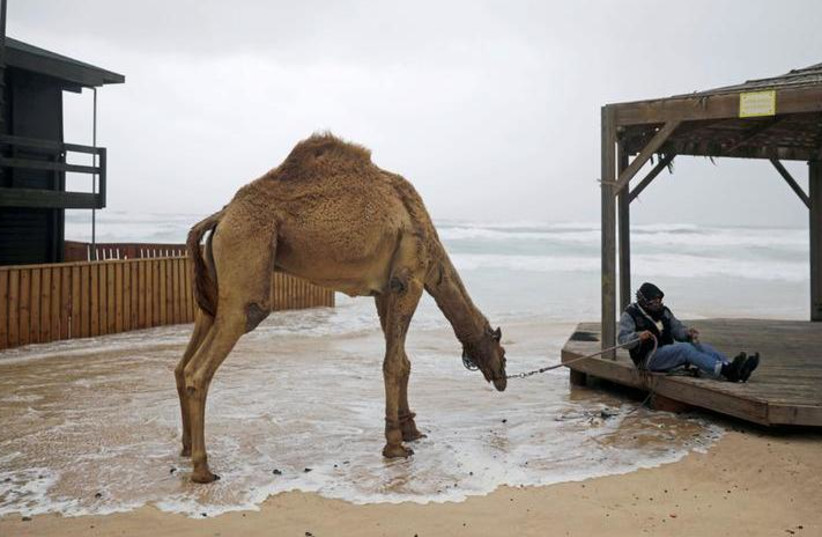As beauty queens gather in Eilat, Israel for the Miss Universe contest, a competing beauty event has been rocked by scandal — Dozens of camel beauty queens vying to become "Miss Camel" were banned from the King Abdulaziz Festival for camels for Botox injections and other artificial enhancements, Arab media reported on Wednesday.
In what Al Jazeera called the "biggest-ever crackdown" on deceptive dromedaries, at least 43 comely camelids were disqualified from the event for artificially modifying the beauty of the beasts.
Botox was injected into the lips of some of the contestants to make them larger, Al Arabiya reported. Other methods of modification included gel implants and rubber-band body distortion. Al Jazeera presented a long list of cheating methods, including using steroids and filler to relax faces.
The myriad of attempts to make one's camel more captivating to the judges by illicit means is likely motivated not just by the King Abdulaziz Award For Camel Beauty, but also the $66 million dollars in prize money.
The annual pageant is the largest camel appreciation event in the world. It began on December 1 and will last for 40 days. There are 19 different categories for each of the 6 colors of camel, who will be judged on racing, obedience, beauty, and more.
According to the Saudi Government website, the contest, which is managed by the Camel Club, "is an annual cultural, economic, sports and entertainment festival in Saudi Arabia under royal patronage" that "aims to consolidate and strengthen the camel heritage in the Saudi, Arab and Islamic culture."
This year, camel owners came from Saudi Arabia, Gulf countries, the USA, Russia, and France to compete in Riyadh.
The contest will continue, over the hump of the scandal.

